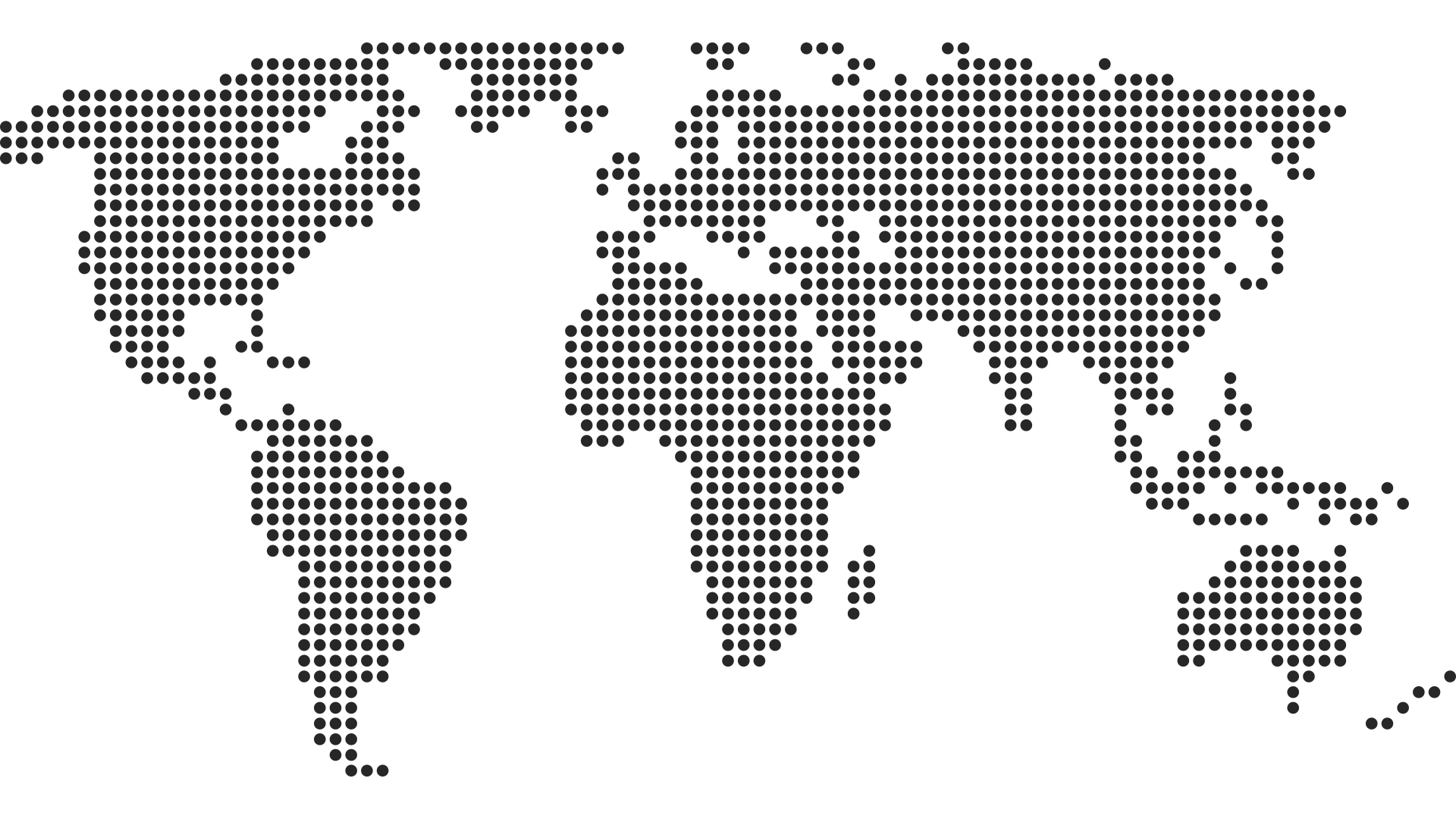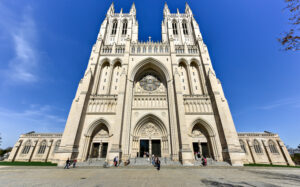Reflecting on 5 Moments of Peace in 2020
From the ICRD Staff
November 16, 2020
In 2020, the phrase, “unprecedented times,” seems to have taken on new meaning. From an increase in extreme weather events to a rise in ideological extremism, from civil society conflict to COVID19, we have been faced with daunting challenges with every turn of the 2020 calendar page. And, while many of these issues are not new to 2020, the seeming crescendo of crises, crowned by a global pandemic, has certainly disrupted our lives enough to give us pause.
Many of us have been motivated to recognize the importance of building new and stronger alliances, particularly where deep divisions, injustices, and institutional conflicts stress the very fabric and functioning of our society. In some important examples of seeing beyond these divisions, religious leaders and adherents found, in their faith, a calling to put aside doctrinal and political differences and come together in search of a way forward.
In recognizing the great tasks that lay ahead in forging a path toward collaborative communities characterized by stability, justice, and well-being, the International Center for Religion & Diplomacy has assembled 5 moments of hope and peace from 2020. While it is not uncommon to feel daunted by such enormous upheaval, and fall into despair or seek for distraction, these moments are reflective of the resilience and capacity of the human spirit to strive for a better world. They are intended to remind us that there are ways forward, even in the darkest hour and in the most difficult environment, and to inspire and compel our own constructive endeavors.
From ongoing global peace movements, to examples of collective action, to quiet advances in stopping violence, they are emblematic of efforts – great and small – that are happening all around the world to resist fatalism and resignation in the face of our current trials. We invite you to take 5 minutes to honor these 5 moments, and many more like them that dot the global landscape, and to look forward with a renewed sense of hope and agency for the journey that lies ahead.
- 20 Years of Women, Peace and Security at the United Nations
2020 marks the 20th anniversary of UN Security Council Resolution 1325 (2000) on Women, Peace and Security. Spearheaded by women leaders and organizations, it was the first formal, global acknowledgement of the important role that women play in violence prevention, peacebuilding, and conflict resolution. This critical institutional commitment for incorporating the insights and skills of women, from professional negotiators to family and community influencers, has meant a transformative shift in our ability to bring peace to areas torn apart by violence. Looking back on the twenty-year legacy of this resolution, much has been accomplished and much remains to be done. However, 2020 is the perfect year to elevate and celebrate the work of women around the world who are, often without sufficient recognition, striving to prevent and recover from the scourge of violence.
- UN Secretary General Guterres and Pope Francis call for global ceasefire, as COVID-19 threatens to worsen situation in conflict zones
In October, the UN Secretary General, Antonio Guterres, reiterated his appeal from earlier in the year for all combatants across the world to lay down their arms in light of the global pandemic. “There is only one winner of conflict during a pandemic: the virus itself,” said Mr. Guterres. “As the pandemic took hold, I called for a global ceasefire. Today we need a new push by the international community to make this a reality by the end of this year.” During a weekly blessing, Pope Francis also renewed his support for the UN Secretary General, stating that the disease knows no borders. The Pope appealed to his audience to, “stop every form of bellicose hostility and to favor the creation of corridors for humanitarian help, diplomatic efforts and attention to those who find themselves in situations of great vulnerability.” Many members of the UN General Assembly, NGOs, combatants, religious leaders, and civil society members from around the world have endorsed the call.
- Over 1,000 detainees in Yemen were released in October, a landmark prisoner
exchange in the country’s brutal 5-year civil war
Yemen has been faced with a brutal and devastating civil war since 2015. The conflict has engulfed the country, leading to institutional collapse, infrastructure and livelihood damage, and a colossal health and humanitarian crisis that has reached a scale rarely seen in recent times. Competing groups claim governance over large swathes of the country, supported by different foreign actors. However, while tensions remain high and peace talks flounder, a landmark prisoner exchange took place between the Houthi faction and their adversaries, representing the largely internationally-recognized government, with over 1000 detainees released. In facilitating the exchange, the International Committee of the Red Cross conducted one-on-one interviews and medical checks with freed prisoners, and supplied them with clothes, money for transportation, and personal protective equipment to protect against the transmission of COVID-19. In an otherwise
- Religions for Peace and UNICEF launch the Global Multi-Religious Faith-in-Action COVID-19 Initiative
UNICEF and Religions for Peace have joined forces to launch a global partnership to raise awareness of the particular impacts of the COVID-19 pandemic on the world’s young people. Social isolation, barriers to education, and faltering economic opportunities have had a disproportionate impact on global youth. The effects of the disease on the physiology and neurology of developing bodies is still poorly understood. The ultimate consequences that this will signify for the next generation may not be known for many years. This faith-in-action initiative highlights the important work of religious leaders and actors in heightening awareness and highlighting the moral urgency of better serving our young people in these difficult times. Spanning across Bahai, Buddhist, Christian, Hindu, Indigenous, Islamic, Jain, Jewish, and Zoroastrian spiritualities, this is truly a global interfaith effort in support of the world’s youth. - Days before the U.S. Presidential election, National Cathedral hosts interfaith service titled, “Holding Onto Hope, a National Service for Healing and Wholeness”
The importance of the stability and integrity of the U.S. political and social landscape has implications not only in the domestic space, but for potential crises on the global stage, as well. On November 1st, days before the contentious U.S. election, and with a startling increase in COVID-19 cases causing widespread suffering and death, thousands tuned in to Washington National Cathedral’s virtual interfaith prayer service, which brought together Americans of diverse faiths to heal and pray for the country. Whereas, in recent days, religion had been advanced by some to deepen cultural and political divides, speakers from major faith traditions leaned on their shared values to highlight the importance of healing and wellness for all people in the United States, in order to find a way to move forward as a nation.
Reflecting on the previous year, schisms, uncertainty, and struggle perhaps best characterize much of our collective experience. But, as we look forward, we can choose to seek inspiration from these and other stories of great faith in the possibility of a future defined by peace. Reflecting on these 5 moments, as well as the countless others that have gone unnoticed in a news cycle dominated by turmoil, ICRD invites you to join us in committing to work – together – to emerge from this collective shadow stronger and more unified. The hardships of 2020 may seem like they are irrevocably pulling us apart but, just as we share these challenges, only together will we rise above them to rebuild the world as a better place for all.






 Skip to content
Skip to content

